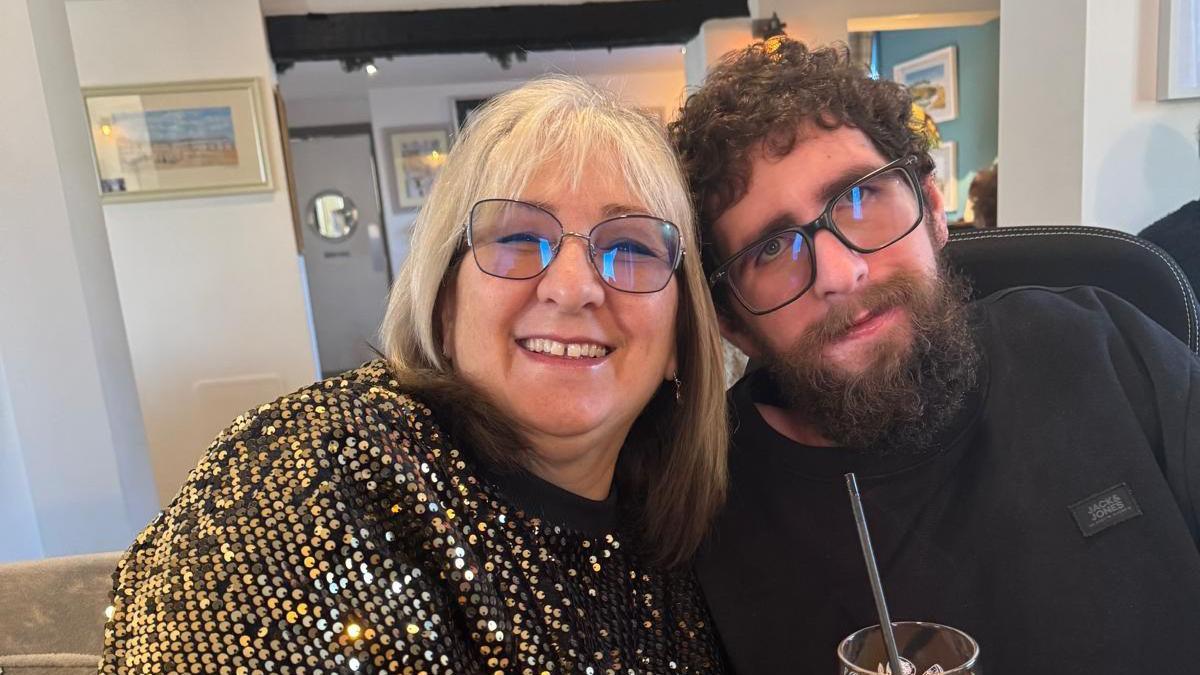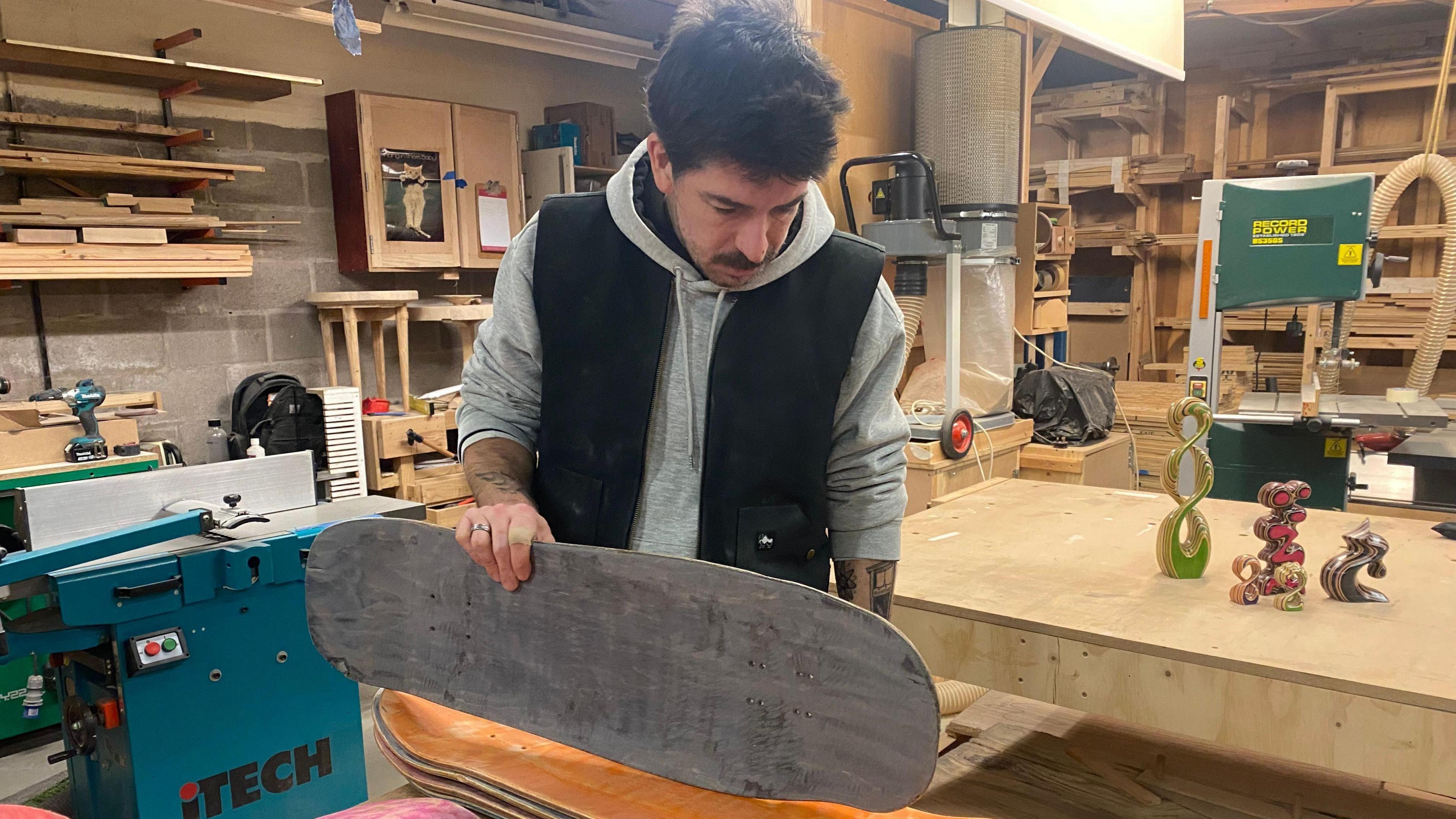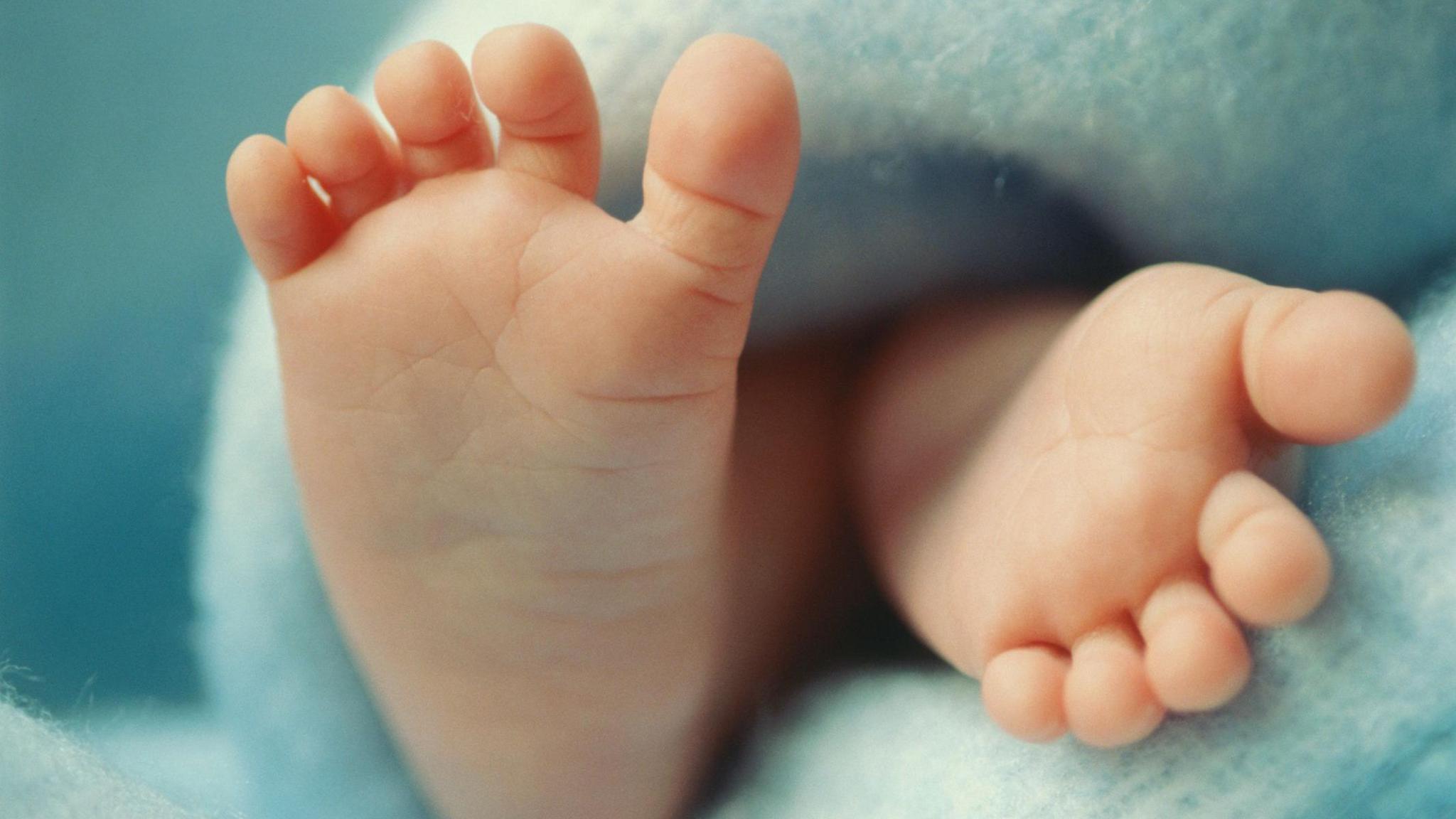Discovery gives hope to family of man paralysed by flu

Timothy Bingham, who was left paralysed from a young age after catching the flu, pictured with his mother Kate Bingham
- Published
The family of a man who was paralysed by flu as a young child have expressed "hope" as scientists have discovered a faulty gene may have been the cause.
Timothy Bingham, from Cheltenham in Gloucestershire, was left paralysed after contracting a mild flu-like illness aged six.
Scientists at the University of Manchester have discovered a change to a gene called RCC1 is behind such severe reactions to mild infections, and hope the finding could lead to a treatment.
"As children are well before they develop nerve damage following an infection, this gives us an opportunity to treat at-risk children before problems occur," said research team lead Prof Bill Newman.
The researchers have described how the condition mimics Guillain-Barre syndrome – a rare condition in which a person's immune system attacks the nerves – and has overlaps with motor neurone disease.
"The similarity with Guillain-Barre syndrome and with conditions like motor neuron disease may help us understand these more common conditions and why some people are at greater risk and what treatments may be effective," Prof Newman explained.
Scientists suspected the rare condition was genetic after an eight-month-old girl was left unable to breathe without the support of a ventilator after what would normally have been a mild chest infection.
The girl's two brothers had also experienced severe problems following similar infections.
Researchers found 24 children from 12 families in nine countries had changes in the RCC1 gene.
Timothy Bingham, 28, was first badly affected by the flu at the age of two but was able to largely recover.
A second bout at age four badly affected his mobility and the dexterity in his arms but he was able to achieve 80% recovery.
At the age of six, Mr Bingham became fully paralysed under similar circumstances. He has used a wheelchair ever since and needs constant care.
A connection was made between the infections and his reaction, and risks have been managed since.
"It's hard for him to chew and he can't drink unassisted," said Tim's mother Kate Bingham.
"He can't move in bed so needs turning throughout the night. The things we all take for granted he can't do."
She added: "The discovery of a gene which is linked to what happened to Tim means everything to me.
"For so long we have lived with uncertainty of not knowing the full picture.
"This breakthrough brings us great hope as it will do to all those people who have waited years for answers."
The study was funded by the National Institute for Health and Care Research, LifeArc and the Wellcome Trust.
Get in touch
Tell us which stories we should cover in Gloucestershire
Follow BBC Gloucestershire on Facebook, external, X, external and Instagram, external. Send your story ideas to us on email or via WhatsApp on 0800 313 4630.
Related topics
- Published5 April

- Published22 July

